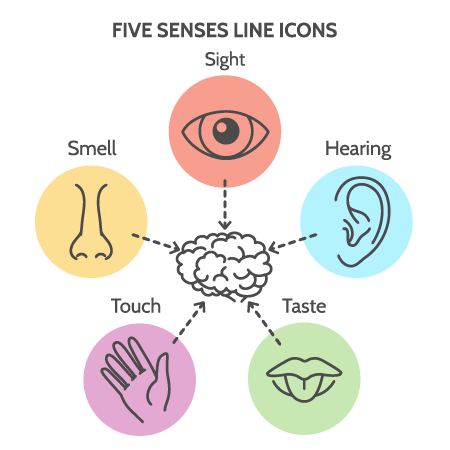
Use Your Five Human Senses For CPA Exam Success
When I take up a challenge, I leave no stones unturned because there is only one outcome, and that is, I win. This has been my endgame with courses and exams. I could share several of my mental strategies, thoughts and experiences in preparing for exams; however, today I will share just one. As a serious joke, I would not cut my hair while I prepare for my accountancy exams because I believe in the concept of strength in all respects and that the Samson in me would prevail. That’s how focus and far I go mentally to slay the lion and win the battle. But that’s not what I want to briefly suggest today. The Samson approach is a discussion for another day.
I recall strategizing for my accountancy exams and organizing myself around the concept that if I use all my five senses (or most of my five senses) in studying and preparing, then I could not lose, but only win. So how do we apply this strategy? This must be done daily/repeatedly to develop your CPA Exam senses.
OUR SENSES |
THEIR APPLICATION(S) |
WHEN AND HOW TO USE |
| Sight | Sight (visual) preparation methods – watching presentations and videos, using flashcards, are reviewing summary diagrams of chapters. | (DAILY) – A hour or two before you sleep. Decorate your room, pin your cards and diagrams over your bed and say your prayers. Place these visual aids at strategic places at work and home. |
| Taste | Taste preparation methods – 4 hours mock exams | (WEEKLY) – You may start this at any point in your studies. However, based on your preparedness, start a month before exams and do a simulated exam on the same day and time as when you will sit your exam(s). |
| Smell | Smell preparation methods – smaller timed quizzes (1.5 minute per MCQ etc.) The concept here is that smell is a precursor to taste. It is supposed to excite you to taste. | (WEEKLY) – On weekends |
| Hearing | Hearing (audio) methods – read aloud, tape yourself and replay or buy audio, podcasts, review CDs, CPA classes, peer discussion sessions | (DAILY) – Driving or riding to and from work. While at work (based on the nature of your work). |
| Touch | Touch preparation methods – preparing and rewriting notes, preparing cards and chapter summaries, practicing questions | (DAILY) – During your core study time. |
Keeping it simple and to the point, because we are busy individuals, we should integrate our studies into our daily activities, in addition to, our study-focus time. Integrate all your senses and don’t be like the student who watched videos over and over, believed he/she mastered the content, but discovered during question-time that he/she could not assimilate what has been asked.
My suggestion is to activate all your senses; however, its understandable that some of us may be more skewed towards one over the other, for example, are better sight than audio learners. It is important to remember that learning is not just remembering. For the CPA Exam, the AICPA tests the skill levels of remembering and understanding, application, analysis, and evaluation. Unless you exercise all your senses then certain elements tested may not be adequately addressed.
Author: Marshall A. Blair, CPA CIA, CGMA
The author coaches CPA Exam candidates in a classroom setting as well as on a one-on-one basis. He has also completed the Association of Certified Chartered Accountants (ACCA) exam and the Certified Information Systems Auditor (CISA) exams.
Email: cpaexamcoach@mabstac.com
https://cpaexam-coach.com



